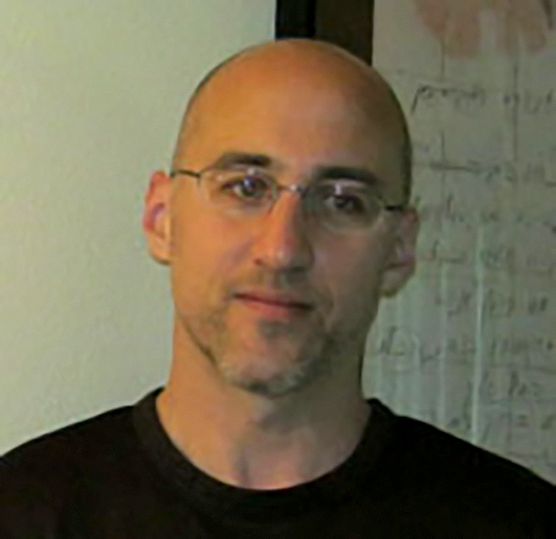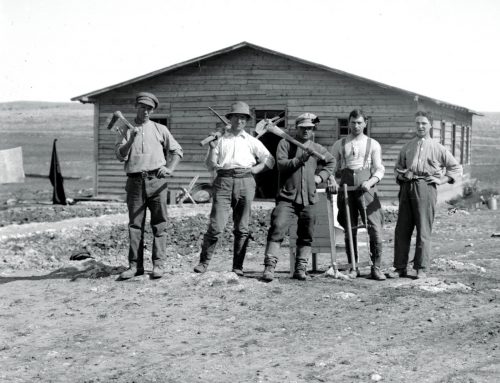
Belshazzar’s Feast by Rembrandt, 1635. The painting depicts a narrative from the book of Daniel, and–as Michael Weingrad says–“a group of people made anxious by Hebrew writing, which they can’t interpret.”
By Michael Weingrad
Can’t or Won’t Learn Hebrew?
Dara Horn asks, “Why don’t more American Jews learn Hebrew?” Her answer: “The reason American Jews don’t learn Hebrew is because they think they can’t.”
She believes that this failure stems from a lack of confidence. Even Horn, who tells us in this recent article that she grew up familiar with Hebrew words and that she was one of those rare, truly engaged students in the supplemental Hebrew schooling of her youth, was convinced that she “could never actually learn Hebrew” as a real language. In her mind, fluent Hebrew was something only Israelis or Orthodox Jews were capable of achieving. And so, even though she spent her teens and twenties reading Hebrew literature, it wasn’t until the age of 32 (a number which, by a lovely coincidence, is rendered in Hebrew by the word for “heart”) that she dared plunge directly, at an international writers conference in Israel, into the world of spoken Hebrew without the perpetual crutch of English translation.
It’s an inspiring story, but I respectfully suggest that she’s wrong about her premise. It’s not that American Jews think they can’t learn Hebrew, but that they actively won’t. After all, American Jews are hardly known for their lack of confidence, certainly when it comes to intellectual pursuits. We are surrounded by American Jews who learn languages and expect their children to learn languages: Spanish, Mandarin, JavaScript. And, as Horn notes, we now live with apps and iPads and streaming video on demand. A language is easier to learn and enjoy than at any time in human history.
The stubborn American Jewish refusal–even by many Jews who are active in Jewish life, and who mouth Hebrew words as sounds week after week in synagogue–to treat Hebrew as a language that can be learned, spoken, and used is nothing short of bizarre.
What we see in this is not an absence, then, of confidence or resources. It is a presence: the active pressure of the American Jewish psyche. American Jewish identity is based on feeling outside, on the threshold knocking at the door but never quite entering. Knocking at the door of Jewish identity, knocking at the door of American identity. To enter fully would be to lose one’s identity and become something different, unthinkable for most American Jews. For them, the front stoop has become home.
The reasons for this mainly have to do with the historical and psychological nature of the mass migration from Eastern Europe a century ago, and the new Jewish identity that those immigrants and their children invented for themselves in the United States. Even today, this odd, ironclad commitment to ambivalence—to that eternal door-knocking—takes myriad forms in American Jewish life and behavior. The point here for our purposes, though, is that learning Hebrew for most American Jews is psychologically impossible. (A similar dynamic applies, as it happens, to learning Yiddish.)
Where you do find American Jews who are more emotionally capable of learning Hebrew is among populations that are distant from the Eastern European mass migration and the American Jewish mainstream it produced: e.g., Orthodox Jews, converts, Soviet immigrants, Mizrahi Jews, etc.
But for most American Jews, Hebrew must remain somewhat obscure, talismanic, at best liturgical, but never transparent or normal. If those Jews ever stopped knocking and instead opened the door themselves and stepped inside—well, there is no telling what they might find.
 Michael Weingrad is Associate Professor at Portland State University. He received his Ph.D. from the University of Washington. Prof. Weingrad has been a Fulbright Fellow at the Hebrew University of Jerusalem, the Montague Burton Fellow in Jewish Studies at the University of Leeds, and a Harry Starr Fellow at the Center for Jewish Studies at Harvard. He is the author of American Hebrew Literature: Writing Jewish National Identity in the United States (Syracuse University Press, 2011), and editor and translator of Letters to America: Selected Poems of Reuven Ben-Yosef (Syracuse University Press, 2014). Numerous essays of his have appeared in The Jewish Review of Books, Mosaic Magazine, academic journals, and on his website, https://investigationsandfantasies.com.
Michael Weingrad is Associate Professor at Portland State University. He received his Ph.D. from the University of Washington. Prof. Weingrad has been a Fulbright Fellow at the Hebrew University of Jerusalem, the Montague Burton Fellow in Jewish Studies at the University of Leeds, and a Harry Starr Fellow at the Center for Jewish Studies at Harvard. He is the author of American Hebrew Literature: Writing Jewish National Identity in the United States (Syracuse University Press, 2011), and editor and translator of Letters to America: Selected Poems of Reuven Ben-Yosef (Syracuse University Press, 2014). Numerous essays of his have appeared in The Jewish Review of Books, Mosaic Magazine, academic journals, and on his website, https://investigationsandfantasies.com.
Links for Further Exploration
- View all of the blog posts in the 2015-16 series, “How We Connect to Hebrew.”
- View the “Hebrew and the Humanities: Present Tense” Symposium webpage.







The words in the painting are Aramaic, not Hebrew.
same kind of situation in RSA [Republic of South Africa] where many Jews, even having gone to Jewish Day Schools, get rid of their Hebrew asap.
In any other country Jews speak of “Judaism” without hyphenation. Only within America can one find people how barely understand, yet claim to believe in a centuries old theological tradition called “Reform Judaism”. Reform Judaism evolved at the same time as the great Protestant revival, and thus viewed itself as an validly independent cult, like the hundreds of Protestant splinter groups. It is a uniquely American phenomenon
The remnant of “serious” Conservative Judaism had a differing view – and a differing attitude towards Hebrew. First they adopted the Israeli pronunciation, and tried to instill fluency in Camp Ramah and the Solomon Schechter schools.
(My personal experience, was that my class in a major Reform Hebrew School, never managed to learn all 22 letters by their bar Mitzvah. When I switched to a Conservative schul, we learned to read like parrots, by Hanukkah of 4th grade)
The base of this ambivalence or antagonism – is that Hebrew is truly the lingua franca of the Jewish People. To speak Hebrew means that you are first and foremost a Jew. Not a successful but progressive member of the bourgeoisie, in the San Fernando valley. Not a bohemian bourgeois in northern Brooklyn.
Among Orthodox Jews the conflict is greater. Many of the older day schools founded in 1930s and 40s taught “Ivrit BeIvrit.” Hebrew was the spoken language of instruction for half the day.
By the 1970s and 80s, Ashkenazi pronunciation firmly dominated Modern Orthodox day schools. Ashkenazi means NOT SPOKEN, but only read, and only religious texts are read.
Unlike members of the Liberal movements, for whom Jewish peoplehood is only and unpleasant conflict, for the Modern Orthodox Jews, it is a real threat: They take it seriously, which means that Zionism is a very real competitor for their kids. Military service. Aliya. transcontinental families. Grandchildren on the other side of the globe.
Arriving in Israel with already fluent Hebrew, makes this move so much easier.
I live in Israel and meat Jews from other Diasporas on a daily basis. It is taken for granted that even slightly traditional French, Australians, Mexicans, and Brazilians can manage quite well in Hebrew.
The American seminary girls on “gap year” come to the dry cleaner down the block, and can’t or won’t even say in Hebrew, their name and what day they will come for the pick up. and this is the product of Pre-K to 12th grades Jewish education.
Americans in general are second-language averse. When they do study a “foreign” language, it is generally because they see some practical value in it. That’s why they tackle Mandarin and Spanish. We have not yet come up with a compelling argument that can convince kids and parents that Hebrew has a practical value — they see it used in synagogue, but nowhere else. Unfortunately, because Israelis are so quick to switch to English instead of Hebrew, most Americans don’t even encounter Hebrew in Israel, even if they spend a semester or a year studying there. The most interesting response I got when I surveyed my supplementary schools students about their feelings about Hebrew was that they liked having a “secret language” which made them “special.” In my day school, of course, the kids just learned Hebrew and never gave it a second thought. The trick is obviously to start Hebrew young and use an immersion program. It’s amazing what they will learn and how much they will like it.
Really no need for a sociological/psychological explanation as to why American Jews don’t learn Hebrew — they don’t have the time or patience to learn a language that is impractical outside of Israel. It’s the same reason American Jews don’t bother learning Greek or Albanian.
Ok.
I’ll comment because you touched a nerve.
I’m a brazilian ashkenazi jew, my grandparents came here from lithuania, and I tried to learn hebrew my whole life; I really feel knocking on a door without ever entering and it’s damn frustrating.
But then, bear with me: First the hebrew I learnt at jewish school until I was 12, wasn’t really hebrew. It wasn’t meant to be conversational, to be used, to be read. It was taught by reform or secular jews who didn’t have a single pint of hebrew in their lives. It was taught as a rote thing, a repetitive mechanism that as you mentioned, never aim to give security or fluency to the person learning it. Never insert the learner in hebrew literature, music, culture, cinema.
Then, I grew up, and wanting to delve into judaism both as a culture and a religion, I felt that I needed to know hebrew. But surprise! Not even synagogues properly taught hebrew! I struggled to find a synagogue with hebrew classes, it was the same one where I had my bar mitzvah, and the whole class was made of evangelical christians who come outside the jewish community to learn. Both teachers were utterly senile, one could barely stand up to greet people when they entered the classroom. I stayed 2 years learning hebrew there, but it was very, very slow. Then I travelled to Israel and I discovered that this hebrew I was learning was completely fake, the pronounce was different (specially the resh sound).
So it is not for lack of trying that I never learnt hebrew. God knows I tried to hear all those shitty hebrew bands, even watch awful hebrew movies without subtitles, but it is near impossible. Like someone mentioned already, hebrew is not very useful already, but group this with the fact that diaspora jews in western countries only pretend to know it/be fluent in it, and you won’t be able to learn it all without paying absurd quantities of money and time. Not to mention that you can’t pick up an israeli journal and start reading even after years of learning.
Do people really think it’s an american jewish phenomenon? I give 3 decades and jewish diaspora will barely exist at all besides hipster jokes and crappy empty hillel rooms.
[…] Continue Reading […]
[…] a recent blog post, Michael Weingrad, Associate Professor at Portland State University, asserts that the reason more […]
There seems to be a very strong association of Hebrew with a language of heritage, and religion. Rather than being treated as a regular foreign language people developed a meaning-heavy an attitude to it. It might be a deliberate rejection, based on the external expectation. A parallel example, being Polish I am “expected” to learn Russian, and this expectation is one of the main factors for my lack of will to do so.
Maybe by removing the pressure, and/or changing the association of Hebrew as a language of the state of Israel (an association which might demand a speaker to have a specific political stance), and a language of prayer, more people will be encouraged to take a stab at it?
Maybe by removing the pressure, and/or changing the association of Hebrew as a language of the state of Israel (an association which might demand a speaker to have a specific political stance), and a language of prayer, more people will be encouraged to take a stab at it?
I wasnt always Jewish – I come from a Christian background. I grew up evangelical. I found myself studying Judaism more and I eventually converted.
I wanted to study Hebrew because I just wanted to read the original texts myself instead of reading a commentary to find out the meaning. I wanted read the Talmud and connect with it.
I tried learning Hebrew by apps, books and watching Israeli media.
I figured how to read Hebrew. I kind of made an attempt to try write Hebrew. I kind of learnt some basics.
Here’s a tip, try writing english sentences in hebrew alphabets – just play with it – it can help familiarize the alphabets and help improve your reading, especially if you have never learnt hebrew ever before.
I tried the books – but they were so boring – I didnt enjoy the tiny short training conversations and sentences. It was so annoying not finding any deep conversations or ideas.
I couldn’t speak fluent Hebrew. But I kind of figured something out.
It kind of works with any language. Instead of just learning words or grammer rules, I also tried recognizing patterns in the language.
And once you recognize some patterns, try watching or listening to Hebrew and check if your patterns are real.
Then keep finding more. Once you get a feel for it, now use Hebrew keyboard – consume social media like an Israeli – the best is YouTube. Look for stuff you would like otherwise in your natural language, but in Hebrew.
Theres no fixed meaningful motive to have to know Hebrew. You either know it or you dont – its something that can belong in your communications arsenal. If you know Hebrew, you can connect with Israelis, Judaism etc. much better. I chose to study it because I understand in what ways knowing Hebrew can be useful.
I dont think you need to be inspired or motivated to learn something to do it well. Just do it because you must, it benefits you and you know why so.
I hope I marry an Israeli woman one day. That would be so awesome even for her to marry someone from a completely different background who figured out how to fit in like a typical Israeli.
Jews must know Hebrew language. People must know their own language.
I say it as being ethnic Russian from Russia.